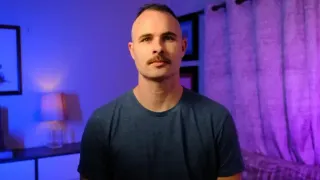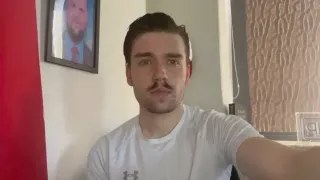April 17, 2016
Kim, Wiener Outline Priorities at Senate Debate
Matthew S. Bajko READ TIME: 5 MIN.
In their first public debate in their race for San Francisco's state Senate seat, Supervisors Jane Kim and Scott Wiener staked out a number of different policy stances on housing, transit, and police reforms.
The two Democrats are running to succeed gay state Senator Mark Leno (D-San Francisco), who is termed out of his Senate District 11 seat this year and has endorsed Wiener in the race.
They have agreed to a series of debates leading up to the June primary, with the first one, held Wednesday, April 6, drawing a standing-room-only crowd to the city's LGBT synagogue Congregation Sha'ar Zahav. The Alice B. Toklas and Harvey Milk LGBT Democratic clubs and the Bay Area Reporter co-hosted the nearly 90-minute debate.
Throughout Kim and Wiener clashed over who would be the best candidate to represent the city's progressive values in the Legislature.
"San Francisco should be the last place to send another moderate Democrat to Sacramento," said Kim, who represents District 6 on the Board of Supervisors and is seen as the more liberal of the two candidates.
Wiener, a gay man who represents District 8 at City Hall, countered that the same argument was used against Leno when he first sought a seat in the state Assembly in 2002.
"His opponents said the same thing, 'You are a moderate.' Mark Leno is one of the most progressive members of the state Legislature and so will I be," said Wiener. "I look forward to representing our great progressive city in the California state Senate."
How to address the steep price of housing in California and the increasing homeless population in many of the state's cities was a major theme of the debate. Both candidates back reforming the Ellis Act, which allows landlords to evict their tenants if they want to exit the rental business.
And they both argued the state could be providing more incentives to cities to build below-market-rate developments.
"It is not acceptable some towns won't build affordable housing," said Wiener. "We need to make sure San Francisco and Oakland are not expected to solve this on our own. The state Legislature can provide those incentives."
Kim pointed to her co-sponsoring a ballot measure this fall that would tax luxury housing in San Francisco, generating $32 million for the city, and called for the creation of a regional housing trust fund to ensure developments that have been approved have the financing they need to be built.
"I've taken on affordability in the city. It is the number one issue," she said. "Whether creating more affordable housing or protecting our existing tenants, I feel I have been able to demonstrate my record of being a fighter for our middle-class and working-class residents."
On the issue of homelessness, Wiener came out against the "right to rest" legislation currently before state lawmakers because it would prevent San Francisco and other cities from banning people from setting up tents on sidewalks or in parks.
"I don't believe our state should be hamstringing our ability to deal with our public spaces," said Wiener, adding that, "we do not need the state to force us to allow people to live and reside on our streets."
He said doing so "is not humane" and that the city needs "to transition people in those tents to shelter, to housing."
Kim said she supports the bill because it is a "response to the hateful policies being used in our city to criminalize homelessness."
She agreed that tent cities are not humane, but added that, "neither is sweeping them when we have no where else to put them. If we as a city want to sweep tents, great, then let's have a place to offer all those individuals and families living in those tents because they have no where else to go."
On transit matters, both candidates voiced support for more funding of public transportation systems, from Muni to BART to Caltrain, and extending the under-construction Central Subway line, which will stop in Chinatown, out to Fisherman's Wharf.
Asked about changing the state rules on how the city can regulate the use of public bus stops by private commuter shuttles, neither candidate fully answered the question.
While she voiced support for the shuttles, Kim argued they should be based at central hubs around the city that can be accessed by public transit.
"We all take Muni. We all walk to work. These other workers can do the same thing," said Kim. "These workers can take a bus to the hub and then a shuttle to work."
Wiener countered such a hub system would be unworkable, as there would be little support from those living nearby proposed locations. He argued the shuttles not only reduce congestion on local highways but also reduce the amount of carbon being released into the atmosphere.
"If we want people to get out of their cars, we have to give them as many options as possible. Shuttles are a part of that system," said Wiener.
The two differed on Mayor Ed Lee's plan to tear down the I-280 flyway that leads into Mission Bay in order to build more housing and reroute how the planned high-speed rail system reaches its terminus at the city's new transit center being constructed along Mission Street near the Financial District.
"I do not support the tearing down of 280 as currently proposed," said Kim, who called for requiring any developments built on the land created include 40 percent affordable. "Before we take down a corridor used by drivers, we need to have an alternative in place."
Wiener said, "In terms of 280, I want to see what the analysis shows before jumping the gun and making a political decision that we shouldn't tear it down."
The two also differ when it comes to allowing San Francisco police to use Tasers, with Wiener in support and Kim opposed.
One issue they agreed on is that the state should cover the cost of gender reassignment surgeries for transgender inmates.
More than 200 people attended the debate. Jason Galisatus, a San Francisco resident who leads the Peninsula Stonewall Democrats, told the B.A.R. he felt Wiener, whom he is supporting, had the strongest performance.
"Scott demonstrated a clear understanding of the policy issues facing all San Franciscans and Bay Area residents," said Galisatus. "I look forward to seeing what he will accomplish in Sacramento."
Matthew DeCoster said that he is undecided in the race, but after seeing the candidates at the debate, he is "leaning toward Kim" because he feels she will be "more pro-renter in general."
He added that he "was happy both are talking about keeping people in their apartments and not just build more, more and more housing."






